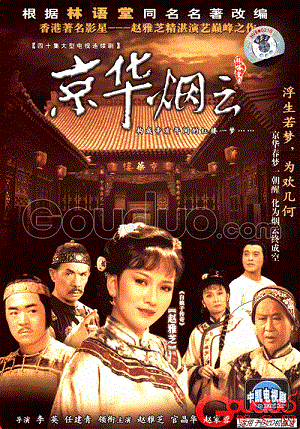One of Dickens most enduringly popular stories is Oliver Twist, an early work published 1837-8. Like many of his later novels, its central theme is the hardship faced by the dispossessed and those of the outside of tolite society. Oliver himself is born in a workhouse and treated cruelly there as was the norm at the time for pauper children, in particular by Bumble, a parish council official or eadle The story follows Oliver as he escapes the workhouse and runs away to London. Here he receives an education in villainy from the criminal gang of Fagin that includes the brutal thief Bill Sikes, the famous artful Dodger and Nancy, Bill whore. Oliver is rescued by the intervention of a benefactor - Mr Brownlow - but the mysterious Monks gets the gang to kidnap the boy again. Nancy intervenes but is murdered viciously by Sikes after she has showed some redeeming qualities and has discovered Monk sinister intention. The story closes happily and with justice for Bumble and the cruel Monks who has hidden the truth of Oliver parentage out of malice. Accusations were made that the book glamorised crime (like the ewgate Group of the period) but Dickens wisely disassociated himself from criminal romances. His achievement was in fact in presenting the underworld and problems of poverty to the well-off in a way rarely attempted previously.
【二】
Oliver Twist provides insight into the experience of the poor in 1830s England. Beneath the novel’s raucous humor and flights of fancy runs an undertone of bitter criticism of the Victorian middle class's attitudes toward the poor. Oliver is a near perfect example of the hypocrisy and venality of the legal system, workhouses, and middle class moral values and marriage practices of 1830s England.
As a child, Dickens endured the harsh conditions of poverty. His family was imprisoned for debt, and Dickens was forced to work in a factory at age twelve. These experiences haunted him for the rest of his life. The misery of his childhood is a recurrent theme in his novels. Oliver Twist expresses the unfortunate situation of the orphaned child. Oliver suffers the cruelty of hypocritical workhouse officials, prejudiced judges, and hardened criminals. Throughout the novel, his virtuous nature survives the unbelievable misery of his situation.
Oliver's experiences demonstrate the legal silence and invisibility of the poor. In 1830s England, wealth determined voting rights. Therefore, the poor had no say in the laws that governed their lives, and the Poor Laws strictly regulated the ability to seek relief. Since begging(www.benkelunwen.cn) was illegal, workhouses were the only sources of relief. The workhouses were made to be deliberately unpleasant in order to discourage the poor from seeking their relief. The Victorian middle class assumed that the poor were uncontroleable due to their state of nature and immorality. Since the poor had no voting rights, the State chose to recognize their existence only when they commited crimes, died, or entered the workhouses.
Dickens' Oliver Twist is one sympathetic portrayal among dozens of vicious, stereotypical portrayals of the poor. However, Dickens himself exhibits middle class prejudice. He reproduces the worst anti-Semitic stereotypes in Fagin, the "villainous old Jew." The portrayal of Noah Claypole, the dirty charity boy, reveals some of the stereotypes of the poor that Dickens criticizes. Monks, Oliver's evil half-brother, is "bad from birth," although Dickens clearly satirizes the middle class's belief that the poor are born crimnals. These inconsistencies weaken the larger impact of Dickens' crusade against the abuses leveled against the poor.
Oliver Twist is not considered one of Dickens's best novels. The plot is misleading and often ridiculous. However, it merits study for its scathing critique of Victorian middle class attitudes towards poverty.






